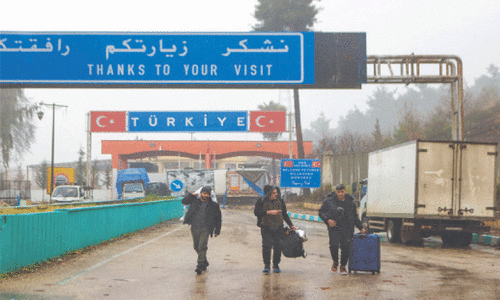 NUSA DUA (Indonesia), Dec 7: A UN conference trying to lay the groundwork for a new climate change pact is unlikely to win any binding pledge by the United States to cut greenhouse gas emissions, its head said on Friday.
NUSA DUA (Indonesia), Dec 7: A UN conference trying to lay the groundwork for a new climate change pact is unlikely to win any binding pledge by the United States to cut greenhouse gas emissions, its head said on Friday.
Developing nations are also likely to refuse to commit to mandatory targets on cutting emissions blamed for global warming, said Yvo de Boer, executive secretary of the UN Convention on Climate Change.
He insisted talks had started “very enthusiastically” on Indonesia’s resort island of Bali, which on Friday evening felt the effects of a 5.9-magnitude earthquake off the coast, mildly rocking the convention centre.
De Boer acknowledged the deep divides within the international community on how to tackle the problem of the world heating up, notably on whether countries should set binding targets.“I think all the delegations have understood the urgency, but I also think that none of the delegations have forgotten their national interest,” he said on the sidelines of the meeting.
Delegates from nearly 190 nations are gathered for the Dec 3-14 summit, tasked with laying the groundwork for a new treaty to tackle global warming beyond 2012, when the Kyoto Protocol’s first phase expires.
Much attention has been focused on the extent of the reductions rich and developing countries need to make in greenhouse gases — which trap heat and cause climate change — to prevent a climate catastrophe.
A meeting of Kyoto parties in Austria in August recommended emissions cuts for rich nations of 25 to 40 percent by 2020, and green groups are keen for a similar figure to be mentioned in the final text of this UNFCCC conference.
But the United States, the only rich nation not party to Kyoto, has made it clear it will not commit to any such figures during this meeting, while Canada has said targets should include growing economies like India and China.
De Boer said he thought the administration of US President George Bush may be willing to pledge to reduce emissions at home, but not on the world stage.—AFP














































Dear visitor, the comments section is undergoing an overhaul and will return soon.